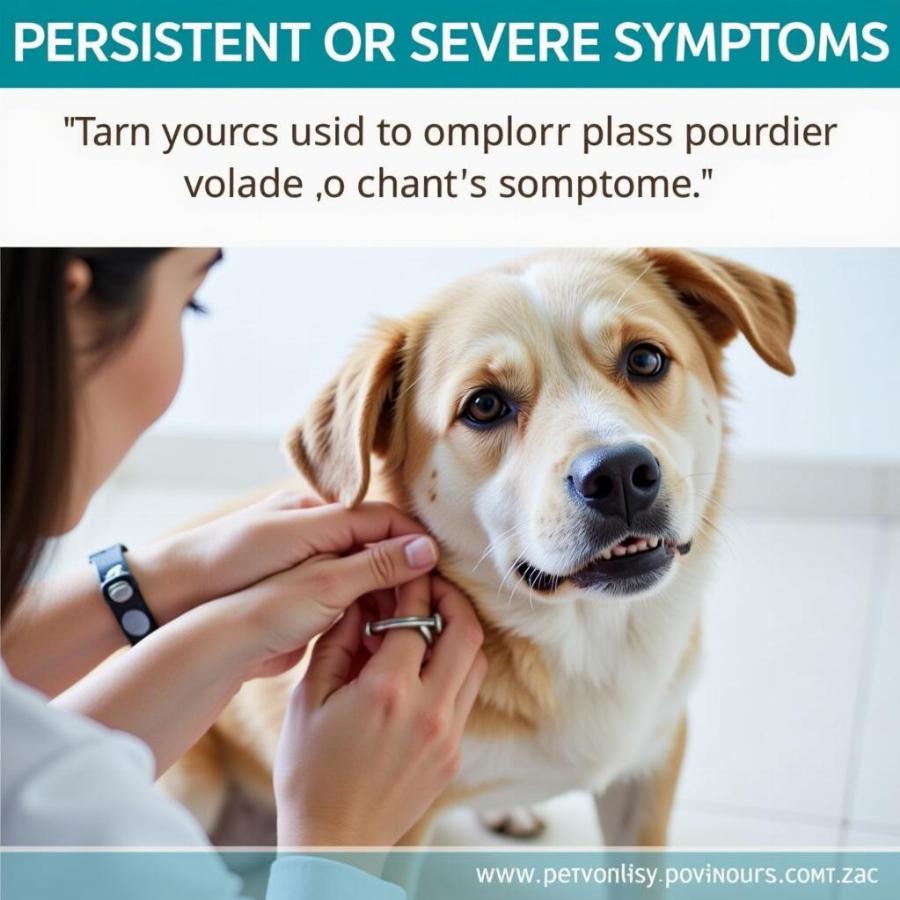Hairball remedy for dogs is a topic that often raises questions among pet owners. While hairballs are commonly associated with cats, dogs can also experience them, particularly those with long or thick coats, or those prone to excessive grooming. Understanding the causes, symptoms, and effective remedies for hairballs in dogs can help ensure your furry friend stays healthy and comfortable.
What Causes Hairballs in Dogs?
Dogs ingest loose hair while grooming themselves or other dogs. Most of this hair passes through the digestive system without issue. However, sometimes the hair can accumulate in the stomach, forming a hairball, also known as a trichobezoar. Several factors can contribute to hairball formation:
- Excessive grooming: Dogs that groom excessively, often due to allergies, anxiety, or skin irritations, are more likely to ingest large amounts of hair.
- Long or thick coats: Breeds with long or thick fur shed more, increasing the chances of hairball formation.
- Dry skin: Dry skin can lead to increased shedding and subsequent hair ingestion.
- Underlying health issues: Certain medical conditions can affect digestion and contribute to hairball formation.
Recognizing the Signs of Hairballs in Dogs
While hairballs are usually not a serious health concern, they can cause discomfort and, in some cases, complications. Watch out for these common signs:
- Vomiting: This is often the most noticeable symptom. The vomit may contain undigested food and clumps of hair.
- Coughing or gagging: Your dog might cough or gag, especially after eating, in an attempt to dislodge the hairball.
- Loss of appetite: Hairballs can make your dog feel full, leading to a decreased interest in food.
- Constipation: A large hairball can obstruct the digestive tract, causing difficulty passing stool. If your dog is experiencing constipation, you may find resources on coconut oil for dog constipation helpful.
- Lethargy: Your dog might seem less energetic and playful than usual.
Effective Hairball Remedies for Dogs
If you suspect your dog has hairballs, there are several safe and effective remedies you can try:
- Increase Fiber Intake: Adding fiber to your dog’s diet can help bulk up their stool and move the hairball through the digestive system. You can achieve this by adding pumpkin puree, sweet potato, or commercially available high-fiber dog food.
- Grooming Regularly: Regular brushing removes loose hair, reducing the amount your dog ingests.
- Hairball Lubricants: Specifically designed hairball lubricants for pets can help coat the hairball, making it easier to pass through the digestive tract.
- Hydration: Ensuring your dog drinks plenty of water helps keep the digestive system functioning smoothly and can aid in passing hairballs.
When to See a Vet
While most hairballs can be managed at home, it’s important to seek veterinary attention if your dog experiences:
- Frequent or severe vomiting: This could indicate a more serious underlying issue.
- Complete loss of appetite: Prolonged loss of appetite can lead to dehydration and other health problems.
- Straining to defecate without success: This might suggest a blockage in the digestive tract.
- Weight loss: Unexplained weight loss can be a sign of various health concerns.
If you’re unsure whether your dog has hairballs or if the symptoms persist, it’s always best to consult with a veterinarian. They can properly diagnose the problem and recommend the most appropriate course of action. Many pet owners wonder, do dogs have hairballs? The answer is yes, and understanding how to address them is crucial for responsible pet ownership.
Home Remedies vs. Veterinary Care
Deciding between home remedies and veterinary care for hairballs depends on the severity of the symptoms. For occasional, mild symptoms, home remedies like increased fiber and regular grooming can be effective. However, if your dog exhibits more concerning symptoms like persistent vomiting or difficulty defecating, professional veterinary care is essential. If your dog keeps trying to poop but nothing comes out, consult your vet immediately.
 Dog at the Vet
Dog at the Vet
Conclusion
Hairball remedy for dogs involves understanding the causes, recognizing the symptoms, and applying appropriate solutions. By incorporating preventative measures like regular grooming and dietary adjustments, you can minimize the occurrence of hairballs and ensure your canine companion remains healthy and happy.
FAQ
- Can all dogs get hairballs? While any dog can technically get a hairball, long-haired breeds and those prone to excessive grooming are at higher risk.
- Are hairballs dangerous for dogs? In most cases, hairballs are not life-threatening. However, they can cause discomfort and potentially lead to complications if left untreated.
- How can I prevent hairballs in my dog? Regular brushing, a balanced diet, and adequate hydration are key preventative measures.
- What should I feed my dog to prevent hairballs? A diet rich in fiber can help prevent hairball formation.
- When should I take my dog to the vet for hairballs? If your dog experiences frequent or severe vomiting, complete loss of appetite, difficulty defecating, or weight loss, seek veterinary attention immediately.
- Can over-the-counter hairball remedies for cats be used on dogs? It’s best to consult your veterinarian before using any medication not specifically formulated for dogs.
- How often should I groom my dog to prevent hairballs? The frequency of grooming depends on your dog’s breed and coat type. Consult a groomer or your veterinarian for recommendations.
Further Reading
You might be interested in reading more about coconut oil for dog constipation and whether dogs have hairballs.
Beaut Dogs is your one-stop resource for everything dog-related, offering expert advice and guidance on all aspects of dog ownership. From breed information to health tips and product recommendations, we’re here to help you provide the best possible care for your furry friend. When you need assistance, please contact Email: [email protected] for detailed and accurate answers from Beaut Dogs. Visit Beaut Dogs today to learn more!